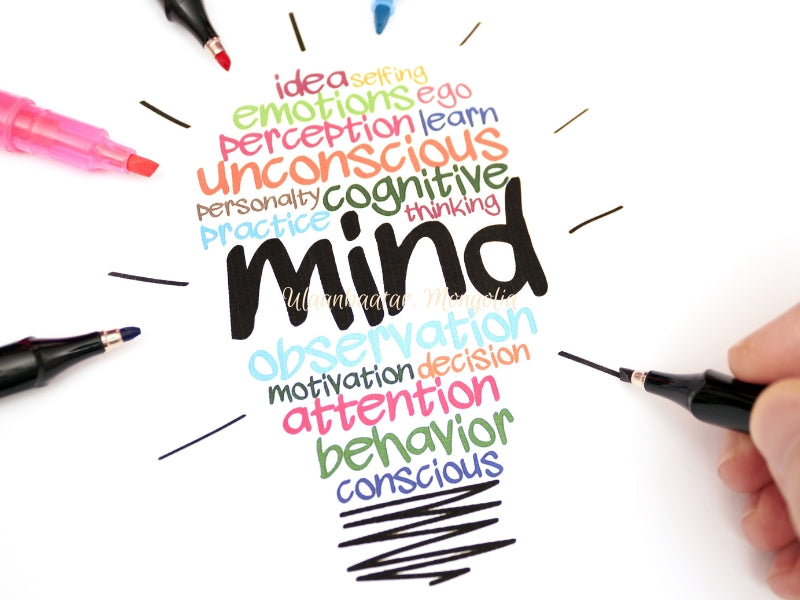10 Habits to Improve Creativity
Improve Creativity
According to author Annie Dillard, how we spend our days is the same as how we spend our lives. However, new research shows that it isn’t our days that determine how we spend our lives, but rather our mornings. What we do with our mornings most determines our creativity and happiness throughout the day. Many people have the misconception that being lazy is the key to creativity. While there is a connection between laziness and being creative, if we are not careful, laziness can spiral into full-blown lethargy. What we do with our time – from how we plan it to how we execute it – is vital to how creative we are, and this starts in the morning. As we will discover, creativity requires abstract thinking, and, as we shall see, it is the ability to provide structure, not just let our minds wander, that encourages this type of thinking. Below is a list of ten habits used by creative people and backed by science that you can make part of your morning repertoire to improve your life and enhance your creativity.

1). Being Mindful
It turns out that mindfulness isn’t just for Buddhist monks. Mindfulness is the state of being aware. According to studies, meditation increases our mental faculties and is an integral part of creativity. In particular, open-monitoring meditation, in which we stay aware of anything that happens to come to mind, is best for promoting creativity. This allows for new ideas to float freely into our minds without being obstructed by the inhibitors that come into play when we focus too much on one thing. According to a study in which subjects meditated using open-monitoring meditation, did another form of meditation, or didn’t meditate at all, the ones who engaged in open-monitoring meditation showed a much larger capacity for coming up with new ideas.
2). Take Time For Yourself
Unless it is urgent, we should resist the temptation to check our e-mails or write to-do lists when we first wake up. We all have obligations that take up our day, so the times we are allowed to be creative must be used to the max. When we get up, we should give ourselves time to focus on tasks that require our creative spark. This doesn’t mean that we should forget our obligations or shut out other people from our lives. It means we should start our day by caring for ourselves first. If we don’t take the time for ourselves upon waking up, we may find that the morning is gone without us having been able to exercise our creativity.

3). Drink coffee
A morning cup of Joe is known for helping us stay alert through caffeine’s blocking of adenosine receptors in the brain. However, caffeine, a central nervous system stimulant, also increases the dopamine released from the brain. This neurotransmitter sends signals associated with a general sense of reward and accomplishment. That good feeling you get after solving a complex puzzle? Dopamine is behind it. By increasing our dopamine levels, we not only feel suitable about coming up with new ideas, but we are also motivated to keep being creative. Of course, not everyone enjoys coffee – so a nice cup of tea may be just what the doctor ordered. For those sensitive to caffeine, eating a breakfast high in protein and brain-strengthening vitamins, such as an egg with toast, may do the trick.
4). Live For Yourself
Creativity comes from within. It may have a basis in external influences, but your ideas come from yourself. This is only possible when you live for yourself – when you do the things you want to do. Steve Jobs said that he looked at himself in the mirror every morning to ask himself if his plans for the day were what he’d want to do if that day were his last. We don’t have to ask ourselves questions in the mirror each morning, but deciding whether we enjoy life is essential. If what we do daily is boring, we should consider changing some things. Dullness leads to apathy, which brings about mind-numbing lethargy, which is one of the banes of creativity. By doing the things that give us enjoyment, we open ourselves up to becoming more active and, thereby, more creative.

5). Don’t Focus too Much
Being fully functional is important to creativity. According to studies, when we are just getting up and our thoughts haven’t gained a lot of focus, we are most creative. Creativity relies heavily on having a broad approach; when our thoughts are not too narrowly focused on one task, we can take this approach. This isn’t the same as not thinking about anything, but it allows a myriad of ideas to enter our minds without analyzing each detail. It’s having a wide perspective of everything – seeing things in a wide-screen view with the mind’s eye. We can continue this unfocused approach by taking the time first thing in the morning to exercise. Whether lifting weights or going for a morning brisk walk, a morning workout will promote the release of endorphins and distract our brains from focusing too much on one thing.

6). Don’t Have Too Much Variation
While some variation can be good for breaking up monotony and leading to getting your creative juices flowing, too much variation in your morning routine can waste time. Such influential people as former President Barack Obama and Facebook founder Mark Zuckerberg limit their choices in the morning (in their cases, what clothes to wear) so that they can use their time to focus on more important things. As former President Obama put it, he has “too many other decisions to make” to worry about which color suit he’ll wear (he always picks either blue or gray). Freeing up time for essential problems or tasks instead of focusing on mundane choices such as what to wear is an integral part of widening the time window to develop ideas and put our creativity to work.

7). Keep Your Day Job
While focusing too much on a task can limit the abstract thinking required for being creative, it’s also possible for the reverse to occur – to have our thoughts so scattered we space out and cannot think of any ideas – old or new. A job is an excellent way to keep our brains working and provide the structure to prevent us from becoming too scattered in our thoughts. As creative thinking requires being able to take a broad approach to problems from varied angles, having a job that requires us to do multiple tasks is conducive to this way of thinking. Rather than sitting around all day waiting for an idea to pop into our heads, we are most creative when we are structured and work, coming home to relax and let our thoughts meander a bit, but not too much, while we unwind.
8). Stick to a Routine
Creativity and randomness are not only different things but also often mutually exclusive. Taking a broad approach does not mean letting our minds wander or focusing too much on something – for instance, what we will do with our days. Constantly changing what we do in the morning detracts from the time and mental energy needed to develop creative ideas. Not knowing what we will do when we should be already going about getting started on our day takes time and is mentally draining. Much like physical exercise, mental exercise has its limits. There’s only so much we can do before we become exhausted and must rest and recuperate. Coming up with a routine and abiding by it is the best way to avoid the time-robbing and mentally distracting need to make many little more or less insignificant decisions. Also, a routine can become “mesmerizing,” as author Haruki Murakami said. Thus, far from inhibiting creativeness, following a routine can induce a sort of meditation as we do things according more to muscle memory and mental reflex than from too much focus and thought.

9). Plan Ahead
If you wake up not knowing what to wear, what to eat, who needs to be called in the morning, etc., you will have to spend a good part of your day (if not all) making analytical decisions. If our time is consumed with analytical thinking, we don’t allow space for new ideas to form. However, far from needing our thoughts to wander completely, creativeness requires another type of thinking – abstract thinking. Knowing what we will do beforehand allows us to wake up and (to appropriate a famous slogan) “just do it.” Just doing what we need to do instead of deciding what needs to be done allows us to complete tasks more efficiently and free up valuable time for thinking abstractly and coming up with the next great idea. It allows for that aforementioned “mesmerism” that comes from having made a routine and sticking to it daily.
10). Be Grateful
Going hand in hand with creativity is an inspiration. Inspiration can come from many sources, from various people and things. Even the most creative thinkers experience mental burnout or periods when their minds go blank when trying to develop something new. When we have to pass over these trying bumps to our creativity, we can use the time to thank those who have inspired us or stood by us through our ideas. So, rather than being an impasse to our ability to come up with new ideas, we can turn these little bumps into an opportunity to get back to the root of why we live the way we live. Showing gratitude is a good way not just to make others feel happy for having helped us but also for us to reconnect with our purpose in life. Returning to our roots is essential in re-evaluating our lives and ensuring that our lives still have the purpose we intend for them to have. Also, thanking people who have inspired us makes them want to continue inspiring and supporting us. Quite often, what may start as a simple expression of gratitude to a friend or family member becomes a discussion in which new ideas are formed and shared, giving us the spark for more creativity.

In our present time, the Age of Information, it may seem that all the good ideas have been taken and that we are just spending our lives learning from those who came before us. Our school days are often filled with memorizing various dates and facts rather than coming up with our ideas. Creativity can, therefore, be very difficult to harness. We all have days in which we can’t seem to get our creative juices flowing, and these days of lackluster creative performance can often discourage us from coming up with new ideas. In order to be consistently innovative, we must be consistent in our daily lives – and this starts with our mornings as soon as we wake up. It is through being mindful of the things around us, not focusing too hard on mundane tasks, having that morning cup of coffee, fitting in some exercise, planning and executing a daily schedule the night before, having structure in our lives via a job or other means, sticking to our routines, not getting too caught up with changing everything, setting life according to our standards and desires, and taking the time to show our gratitude to those who have inspired and supported us that we find the means to be consistent and keep our creativeness alive and well.












